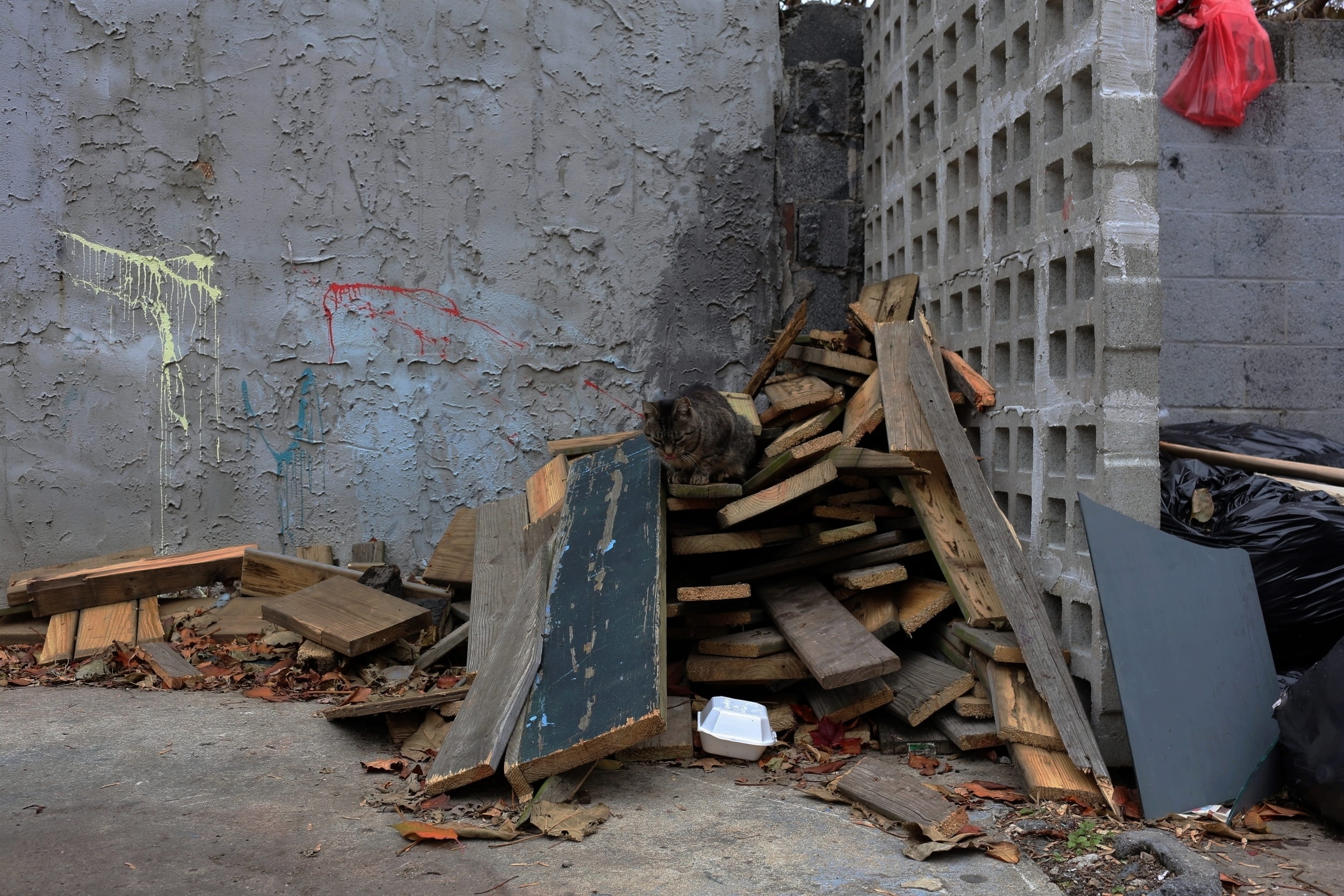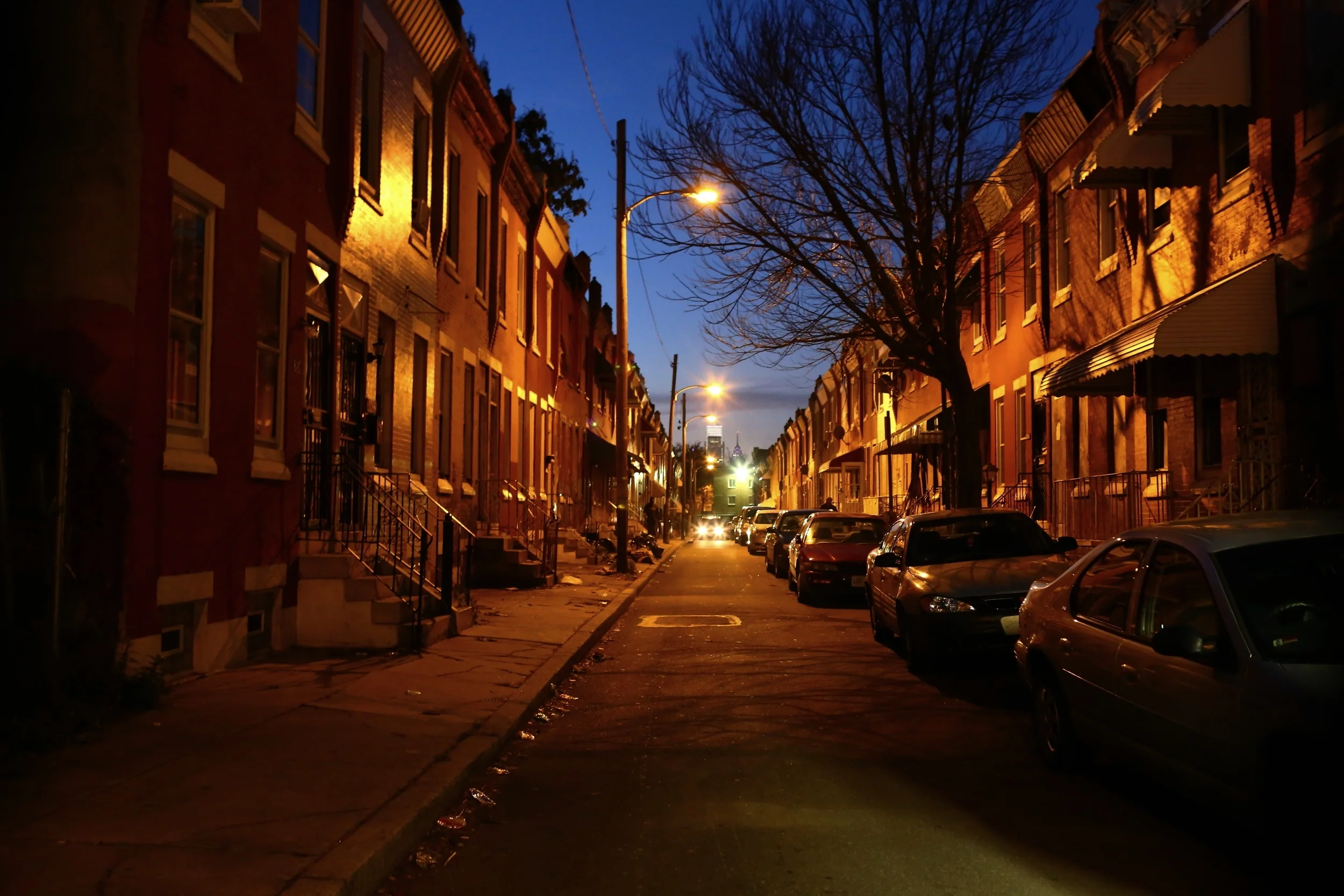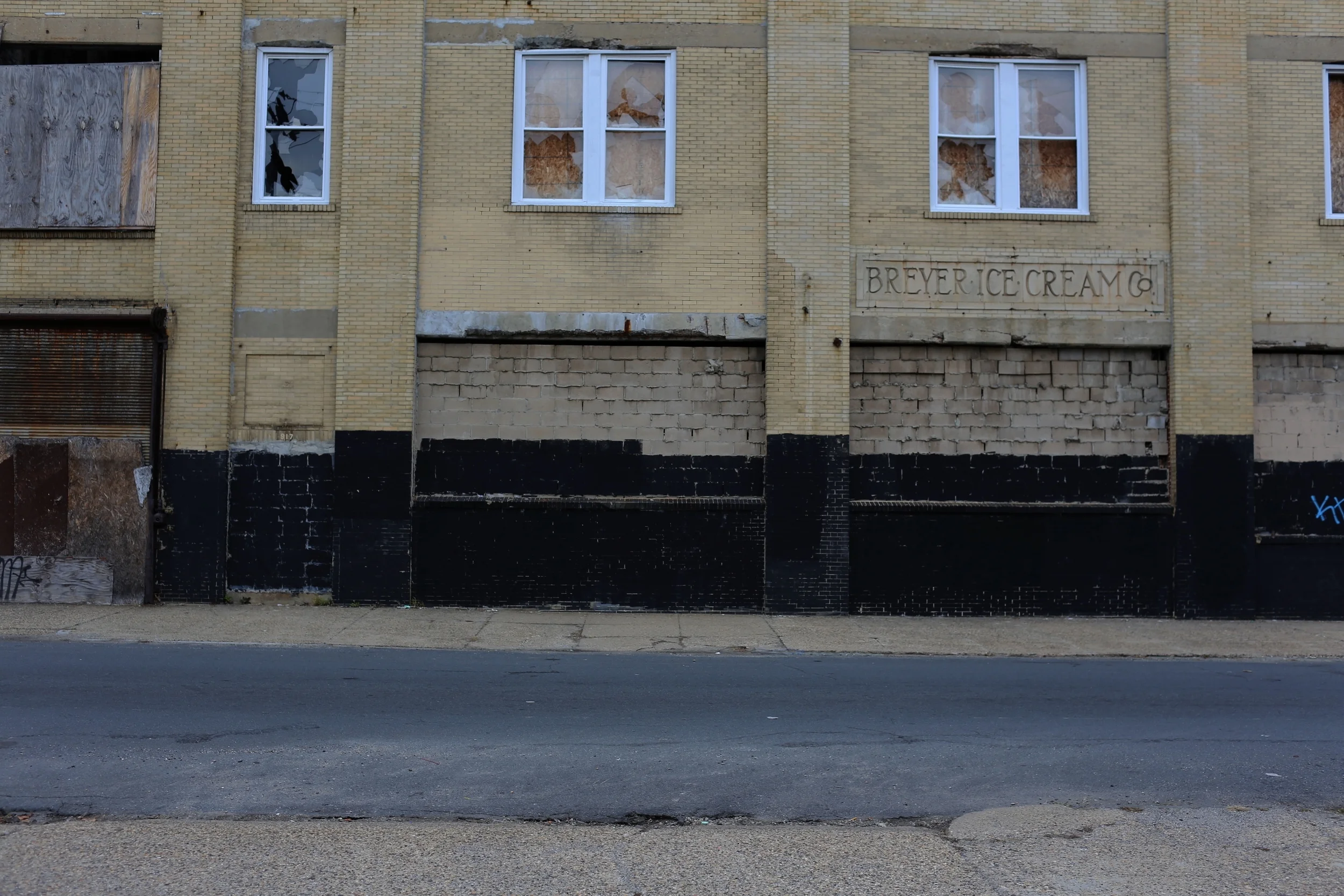







QUINZEL TOMONEY
N O R T H P H I L A D E L P H I A
Quinzel Tomoney is a supervisor at Philadelphia CeaseFire, a leader among leaders in his North Philadelphia community. His speech is raspy, eloquent, and deep, laden with wisdom and understanding. His stories evoke movement and feeling, not only relating his experiences, but bringing them to life - especially for those that he hopes can learn from him.
Quinzel serves as a listener, teacher, and leader for those who have none. According to him, gun violence is not a string of isolated incidents, but an integral part of the culture of his community. Ending the violence means changing the way people think and live.
Growing Up
"I lived in a household that had two girls and four boys. Growing up was kind of difficult … We would go to school, we’d come home to no heat, no electric, mom struggling. She was just keeping her composure … I couldn’t stand to watch my mom suffer like this.
"When I was a kid, I’d go back to school after Christmas time, and everyone had got something new. But there were six of us. With the aid, [my mom] might get three [of us] gifts before Christmas. So three would get gifts after. I was always the one after. That was killer, to go to school with kids laughing and picking on you.
"[In ninth grade] I ran into this guy … He said, ‘Here, you want to make some money? All you got to do is two hours at a time.’ So I took a chance. I’d never cut school a day in my life, but I cut school.
"The first thing that came to my mind is, I can take some pressure off my mom … So I went and took some bills, paid a couple guys to go get the payment for her. We got the gas turned on. From there, the money just seemed so easy … I stopped going to school. I started catching cases.
"When you get somebody who comes to you and offers you something that can pay off your mom’s bills when you see her struggling to put sneakers on your feet, I felt like it was a good thing to take advantage of, and I did. I wanted that lifestyle. I wanted to have what they had, so they wouldn’t laugh at me. A lot of these guys were going through that … All you’re thinking is, I got to feed my family."
An Addicting Lifestyle
"When I got that money, it changed everything … I had every card possible for a young guy to have. When I was 17, I went to jail … The whole time I was there, I was sort of addicted to the lifestyle I had been living since the ninth grade. Once you’re in that lifestyle, there’s three things: get out, get killed, or go to jail. But they just say, 'get killed or go to jail,' because the average person doesn’t get out. Once they get in, they see the money, and they’re sucked in.
"But at the same time, that money made my heart so hard. I never really thought about the people, the kids, the households, who were struggling like me. The only thing I was doing was making it worse. I would sell a woman drugs, and she had two or three kids sitting there, starving like I was. And I was making it worse because I was taking her money, putting it in my pocket. Feeding my family, while I kept feeding her family with cocaine. So that really did take a toll on me."
Set Straight
"Then I was incarcerated in the federal penitentiary … There’s a whole process of you changing your mindset after you’re incarcerated … This time, I was thinking, What am I going to do when I go home? I can’t come back here. It was about time that I do something positive.
"I saw a lot of people who died in the same process I was in. So I took it as a blessing. I was getting another chance, and I wanted to make something out of this. When I came home … the people that I knew on the streets, I’d stay away from them. I got a job, got married, had two kids. And that just set me straight.
"[Before I went to jail], people told me, 'Yo man, it’s hard out here. There ain’t no jobs out here.' But I got a job … It’s only hard if you want it to be hard. The problem with a lot of individuals out here is they think they’re worth more than they are … How do you expect to make ten dollars an hour if you’ve never worked a day? They don’t want to wait, they just want to get it.
"This way, it’ll take longer, but I don’t have to worry about every second, every minute, looking over my shoulder. That’s the difference from my 500 dollars and your 500. You sold drugs to get yours. When I’m working, I don’t have to worry about looking over my shoulder to see if someone’s going to stick a gun to my head or the cops are going to chase me off the block."
Lead by Example
"Here’s the problem. [Kids] have never had anybody to show them. They have no one to listen to. You can tell the kids, 'You can be what you want to be,' but you aren’t really showing them that you mean what you’re saying. By not showing them, that support is weak … You gotta know how to push them, give them drive.
"Nine times out of ten, people look at us as felons … But what is that doing except knocking down people that are trying to give back to the community? You can say you’ve never had a felony or never been arrested, but what have you done in your community that you can say is positive? … There are no longer people scared of me, or looking at me saying, 'He’s a drug dealer’ … And the kids? We can actually tell them what it’s like, because we’ve been there."
- - - - - - - - - - - - - - - - - - - - - - - - - - - - - - - - - - - - - - - -
Interview by Dan Kurland and Tia Yang | Portraits by Dyana Wing So | November 2014